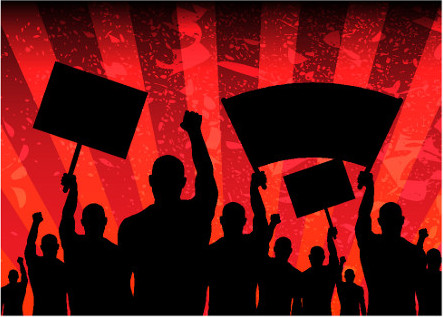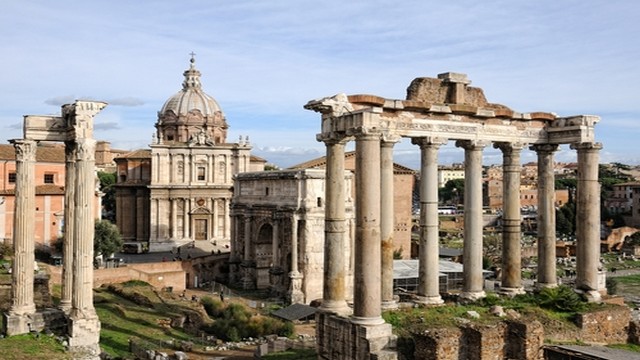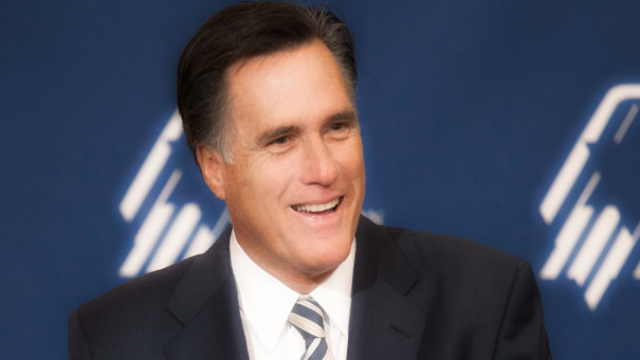Politics & Current Affairs
All Stories
A new iPhone app allows Americans a clear window into the operations and rationale behind the Super PACs that are currently blanketing television’s airwaves with campaign ads.
The type of global attention drawn to the Pussy Riot trial and verdict bears uncomfortable similarities to that engendered by the Kony 2012 video.
Breast milk exchanges are taking off in parts of the Philippines thanks to government-sponsored incentives for both donors and recipients.
With Romney’s selection of Paul Ryan as his running mate, the 2012 election is shaping up to be a battle over whether and how the federal government should tackle the […]
An increasing number of Chinese are protesting the poor environmental state of their nation, bolstering the efforts of local green groups and attracting attention from overseas.
The United States has been the world’s “guardian of the state system, and of open expression and free trade.” Should the United States cease to be this “guardian,” it would cause a turn of events that would lead to empires.
“On television talk shows, one hears the notion that America is a nation founded on Judeo-Christian values, which presumably means those are the only values worth knowing about, and outsiders should be the ones doing the studying and accommodating.”
According to reports, the new discoveries of natural resources in African countries like Ghana Uganda, Tanzania or Mozambique can either be a blessing or a curse.
Plenty of people are happy for their leaders and bosses to make choices for them, as long as they probably would have made similar choices themselves. Yet when leaders and bosses don’t truly represent the interests of their constituents and employees, nudging can be toxic.
In 1990, Kate O’Connor was the aide for the lieutenant governor of a small, largely inconsequential New England state. Fourteen years later, when Howard Dean became a front runner for the 2004 Democratic presidential nomination, that job — her first — suddenly changed.
A dramatic worldwide shift from defined benefit to defined contribution plans has also given employees the ability to take planning into their own hands. But with this freedom comes a confusion: What’s the role of the employer versus the role of the employee in all this?
If we accept Bruce Bueno de Mesquita’s claim that remaining in power is the primary motivation of our leaders, then the political structure of a nation is the single most important determinant of how responsive its leaders will be to its people’s needs.
“John Quincy Adams said that the United States should be the ‘well-wisher to the freedom and independence of all . . . , the champion and vindicator only of her own.’”
The U.S. Constitution protects a person’s right to freedom of speech everywhere except the workplace.
The redoubtable fashion critic Simon Doonan, author of Gay Men Don’t Get Fat,observes that a unique appearance is a political liability in the United States. Mitt Romney, he observes, is “so handsome that he runs the risk of looking too “plastic…like a TV anchor.”
Reportedly, last May there was a shoot-out between U.S. and Honduran anti-narcotics agents and traffickers. Residents were “infuriated” about the presence of U.S. and Honduran police, and set out to push local drug traffickers out of their communities.
Payday Loans are a trap of high interest loans for people who have a hard time repaying what they borrow. Oklahoma, Missouri and Washington are the states with the most storefronts that lure borrowers.
The United States Defense Department has been beckoned by the Pentagon to clearly define its strategy in the Pacific towards Asia.
Does democracy require universal suffrage? Yes, I think so. So does the Supreme Court. Economist Bryan Caplan isn’t so sure. A few years ago Caplan identified several pernicious biases individuals […]
Given the increasing influence that neuroscientific explanations have over our justice system, we must insist on improving scientific literacy so that the foundations of justice are upheld.
The state of California is leaving it up to its voters to decide if packaged foods containing genetically engineered ingredients, should come with a label.
Why I Support Guns I submit that there is a rational, human, apolitical argument for supporting gun ownership in America. No prominent supporter of gun use and ownership, nor the […]
The documentary Ai Weiwei: Never Sorry is the portrait of a man fighting a one-man war of ideas with the Chinese government, daily putting his own life at risk for the sake of the country he loves.
Are the Republicans deliberately hurting the economy to hamper President Obama’s chances of reelection, or are they just doing it because of misbegotten ideas?
The U.S. looks to China to support them in its attempt to restrict Iran’s nuclear objectives.
The Director of National Intelligence admits in writing that there was at least one occasion when government spying was in violation of civil rights.
Women want to have the career, husband and the kids, but to have it all is very difficult—and it isn’t because women are incapable of doing it all.
The Occupy Movement is unique in seeking more equitable social change without the visible presence of individual leaders. But it’s disdain for hierarchy may ultimately hurt its goals.
The GOP has a long tradition by which its most educated members criticize the “intellectual elite.” But the conservative brain trust seems to have run dry, with criticism approaching caricature.
What’s the Big Idea? In a blog post from December 2010, Dr. Michio Kaku discussed the perils of our public school system and called into question the schools’ curiosity-crippling methods, which he […]





























